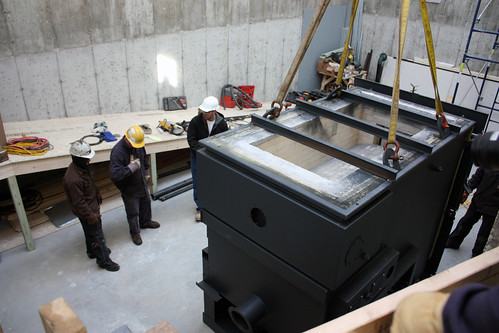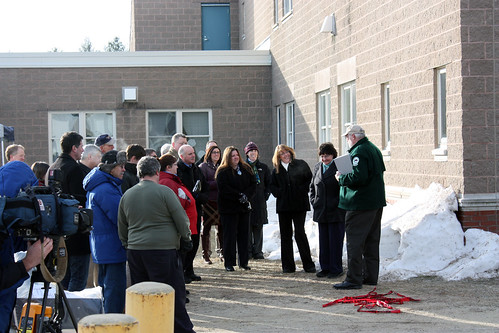
In August 2009, a total of $11.4 million in U.S. Forest Service Recovery Act funds were made available to the State of Maine for grants to help rural, economically depressed counties support the conversion of heating systems to wood/dual-fuel heating systems for an estimated 15 public buildings.
The grants fund a program that is designed to create and retain jobs in Maine; achieve energy savings through wood-to-energy installations; reduce dependence on non-renewable energy resources; reduce greenhouse gas emissions; and support sustainable forestry.
Beginning in fall 2009, the Maine Forest Service (MFS) began the first of three application rounds for these biomass heat and energy installation projects. So far, 22 Recovery Act grants had been awarded to schools, universities, medical centers, and other public buildings around the state.
Maine’s forest industry has a significant impact on the state’s economy. Recovery Act funding is expected to promote wood-to-energy (biomass) activities and will also help achieve a national goal of healthy, sustainable forests. This funding is creating and supporting jobs among licensed solid wood-fuel professionals, contractors, and engineering firms. Loggers and other forest-product professionals will benefit too.
Not only are the awards adding jobs through the construction phase of these projects, but they will also save recipients between one-half to two-thirds on their annual heating bills while reducing dependency on foreign oil, according to Tom Wood, MFS senior planner.

On January 6, 2011, officials gathered for the installation of the first wood-to-energy boiler that was financed primarily by the Forest Service Recovery Act grants to the state. This project was among the first grant applications to be approved and the boiler was the first to be installed since the program began. The boiler was lifted by crane and placed through the open roof of the Poland Regional High School/Bruce M. Whittier Middle School into its permanent location.
The state-of-the-art wood-to-energy system now supplies hot water heat to the 134,000-square-foot school and is replacing 47,000 gallons of fuel oil per year, at an estimated annual savings of more $125,000.
“It couldn't be coming at a more opportune time,” Poland Regional High School Principal Cari Medd said. “Our number one boiler let go almost a year and a half ago, and our second boiler is on its last legs.”
The one-time funds will be spent or committed within two years. “This program is about harvesting, processing, transporting, and consuming more Maine wood. This all adds up to more Maine jobs,” Governor Paul LePage said.


